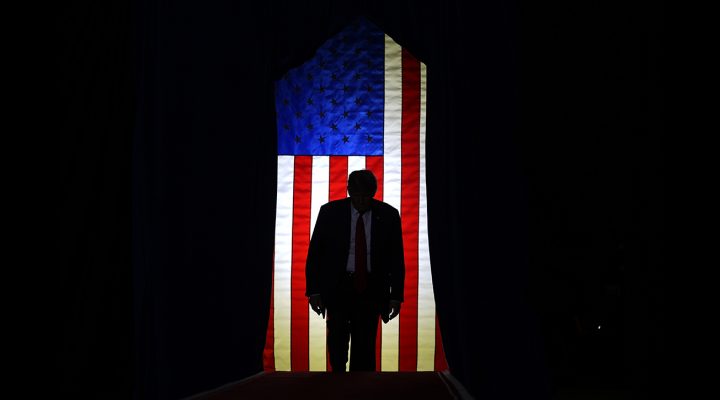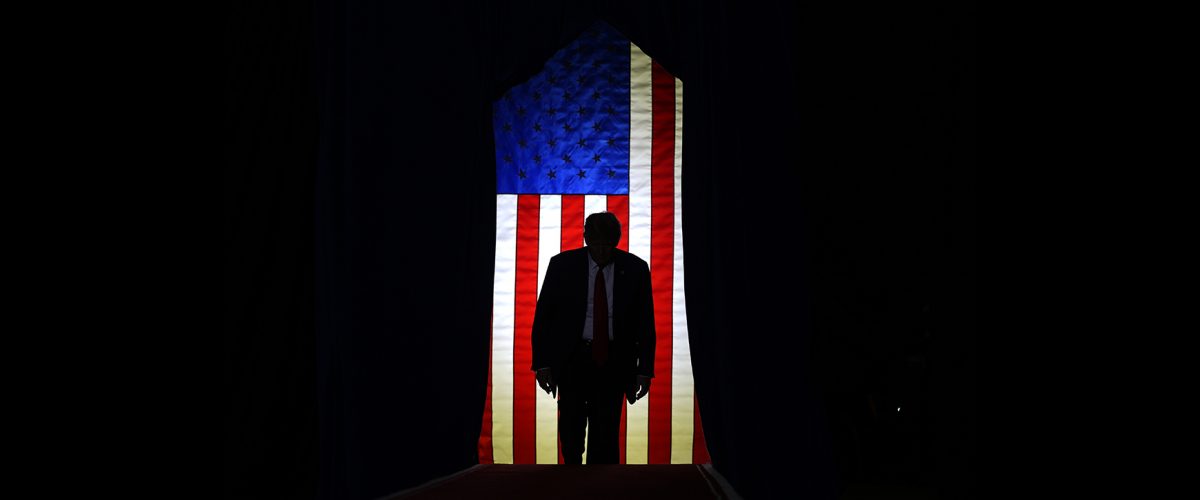I’m tired already.
And filled with a sense of deja vu and dread as we face another Trump run for the presidency.
More than half of Trump supporters in 2024 are evangelicals. Imagine that. People who profess to be Christian continue to support a vile, law-breaking, Constitution-defying, racist, abusive, lying, insurrectionist.
Does “owning the libs” really feel so good that it’s easy to mistake smug triumph for a spiritual experience?

Susan Shaw
Trump’s divisiveness is the antithesis of the gospel’s call for unity. His presidential campaigns and four years in office tore families, friends and churches apart. Do his supporters actually look forward to reliving the ugliness and the broken relationships that follow in Trump’s wake?
When I read Sinclair Lewis’ It Can’t Happen Here back in the 1970s, I thought it really couldn’t happen here. I thought evangelical Christians were committed to democracy, religious liberty and the separation of church and state. After all, I’d learned those things in my fundamentalist Southern Baptist church.
Then came the fundamentalist takeover of the Southern Baptist Convention along with the wedding of evangelical Christianity to the Republican Party under Ronald Reagan, and I began to think, “Well, maybe it can happen here.” I saw what self-professed Christians were willing to do to gain religious and political power.
And now we know the two architects of the SBC takeover — Paige Patterson and Paul Pressler — were abusers. Patterson lost his presidency of Southwestern Seminary for trying to bully a woman into not reporting her rape. Pressler’s been exposed for allegedly abusing young men, and current SBC leaders like Al Mohler are still trying to deny Pressler’s abuse.
“We watched evangelicals abandon every moral qualm they had to explain away the degradations of Trump’s behavior.”
Still, I was surprised when evangelicals embraced someone so antithetical to the teaching of Jesus in Trump. The slight progress of the Obama years on issues of race, sexuality and gender must have tapped into a deep-seated fear of true inclusion and equity. The backlash was Trump. And we watched evangelicals abandon every moral qualm they had to explain away the degradations of Trump’s behavior.
Now, they seem quite willing to do the same thing all over again. The lure of power seems too great, no matter the disasters that follow in its wake.
So here we are again.
Somehow in the past four years, Democrats have failed to create a vision that invites more people in. Again and again, research suggests more Americans hold values in line with Democratic priorities. Yet Democrats fail to create enthusiasm for policies that would make life better for so many of the people who support Trump. I suppose, though, it’s hard to make policy sexy. Outrageous lies and ugly insults are much more compelling must-see TV.
Despite everything we saw, experienced and learned during Trump’s campaigns and presidency, we really are going to do this again.
So I think evangelical Christians have a choice to make: Continue to support Trump or decide to follow Jesus. Now, I’m not saying the Democratic Party is the party of Jesus either. I am saying Trump’s behavior, his goals for a second term and the history of his first term are incompatible with the gospel.
“Evangelical Christians have a choice to make: Continue to support Trump or decide to follow Jesus.”
Evangelicals may not care about that. In that case, they should just be honest about it. They should acknowledge that the high of political power is more important than the peace that passes all understanding, that Trump’s words are more inspiring than Jesus’ commandment to love one another, including one’s enemies, and that a chest-bumping white Christian nationalism is more appealing than God’s inclusive community.
Then they must own what happens next if Trump wins because it will go down in history as one more failure of the church on behalf of the poor, vulnerable and oppressed, just as in enslavement, Manifest Destiny, the Holocaust and Jim Crow.
If it happens here — if democracy falters, if oppressed people are further harmed, if more families are divided, if women, people of color, LGBTQ people and children die — the church will again bear responsibility for choosing earthly power over divine love.
After all, in the wilderness, the tempter offered Jesus earthly power. Jesus turned him down in no uncertain terms: “Get away from me, Satan! for it is written, ‘Worship the Lord your God, and serve only God.’”
Evangelicals would do well to remember that.
Susan M. Shaw is professor of women, gender and sexuality studies at Oregon State University in Corvallis, Ore. She also is an ordained Baptist minister and holds master’s and doctoral degrees from Southern Baptist Theological Seminary. Her most recent book is Surviving God: A New Vision of God through the Eyes of Sexual Abuse Survivors, co-authored with Grace Ji-Sun Kim.
Related articles:
Can you hear him now? | Opinion by Mark Wingfield
The Christian case for democracy | Analysis by Mark Wingfield
One thing that must happen in 2024 | Opinion by Mark Wingfield
Broken-hearted patriotism | Opinion by David Gushee


